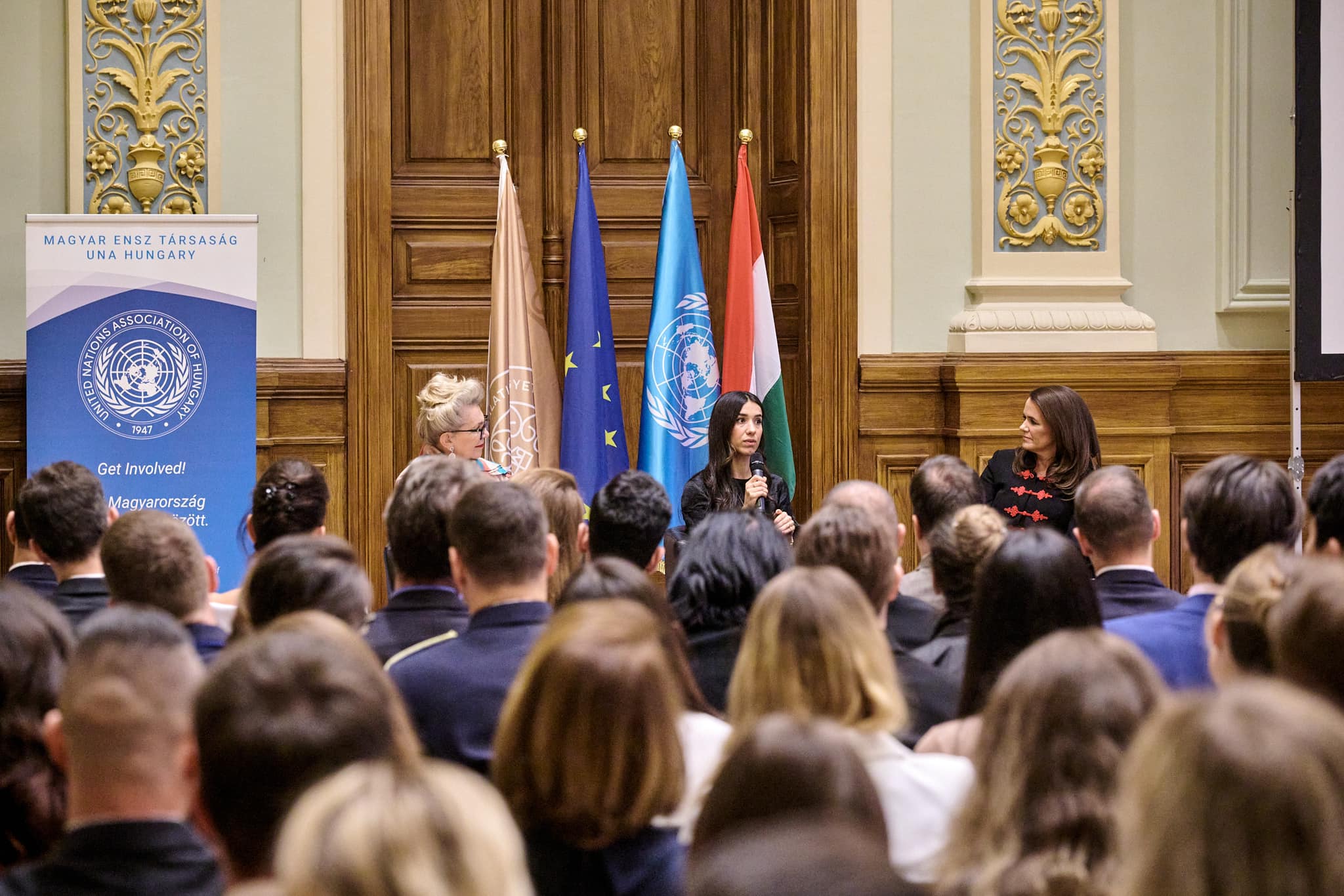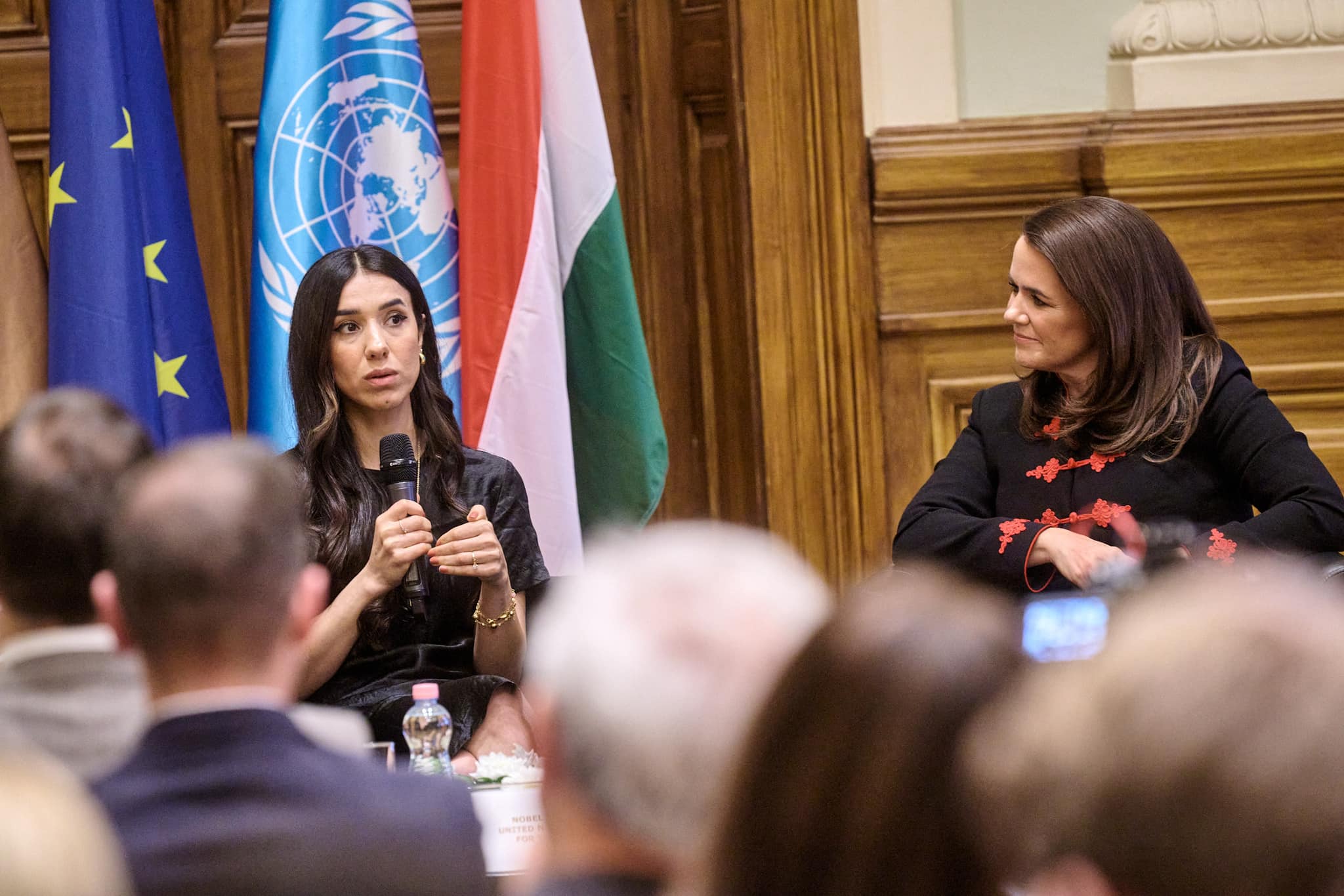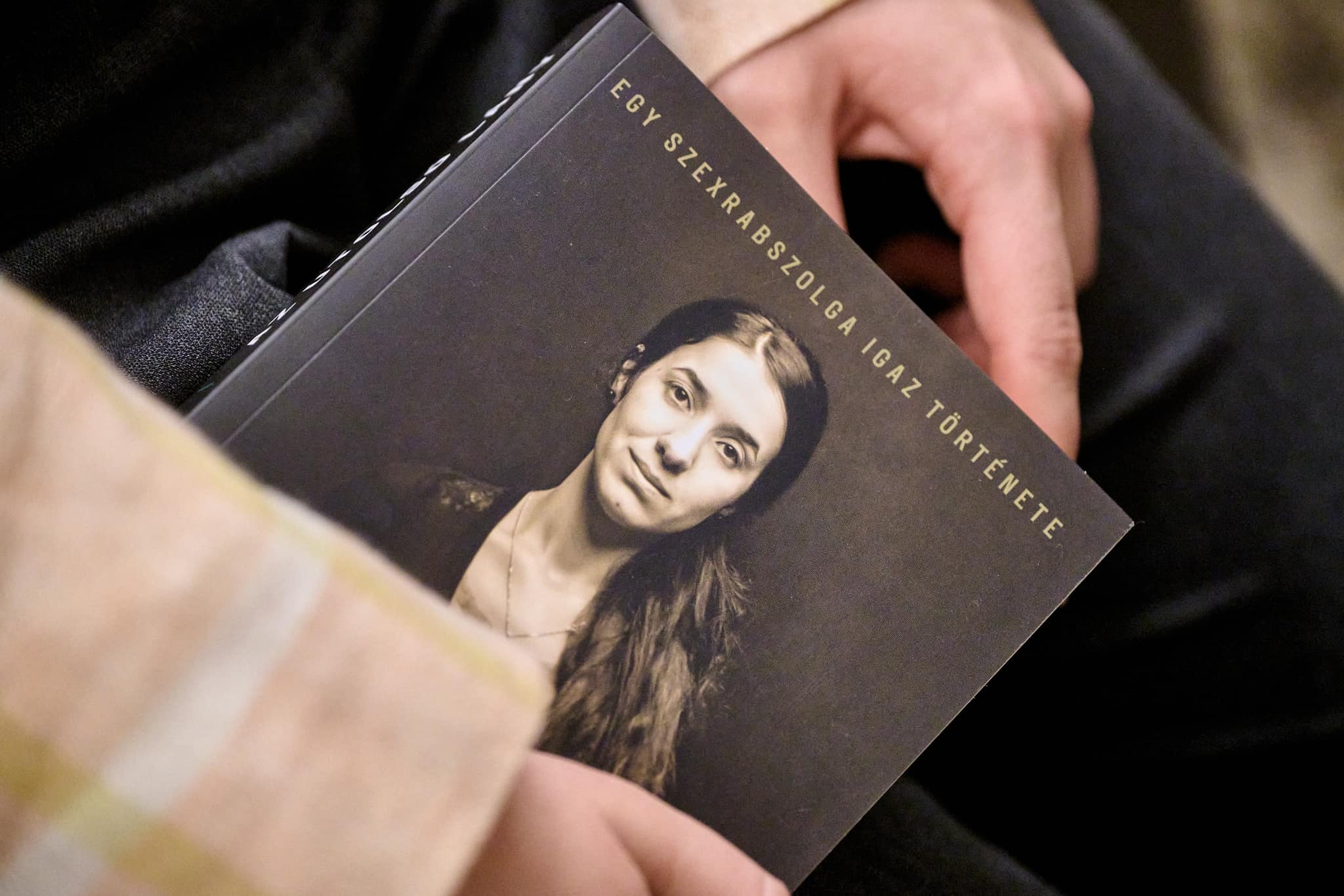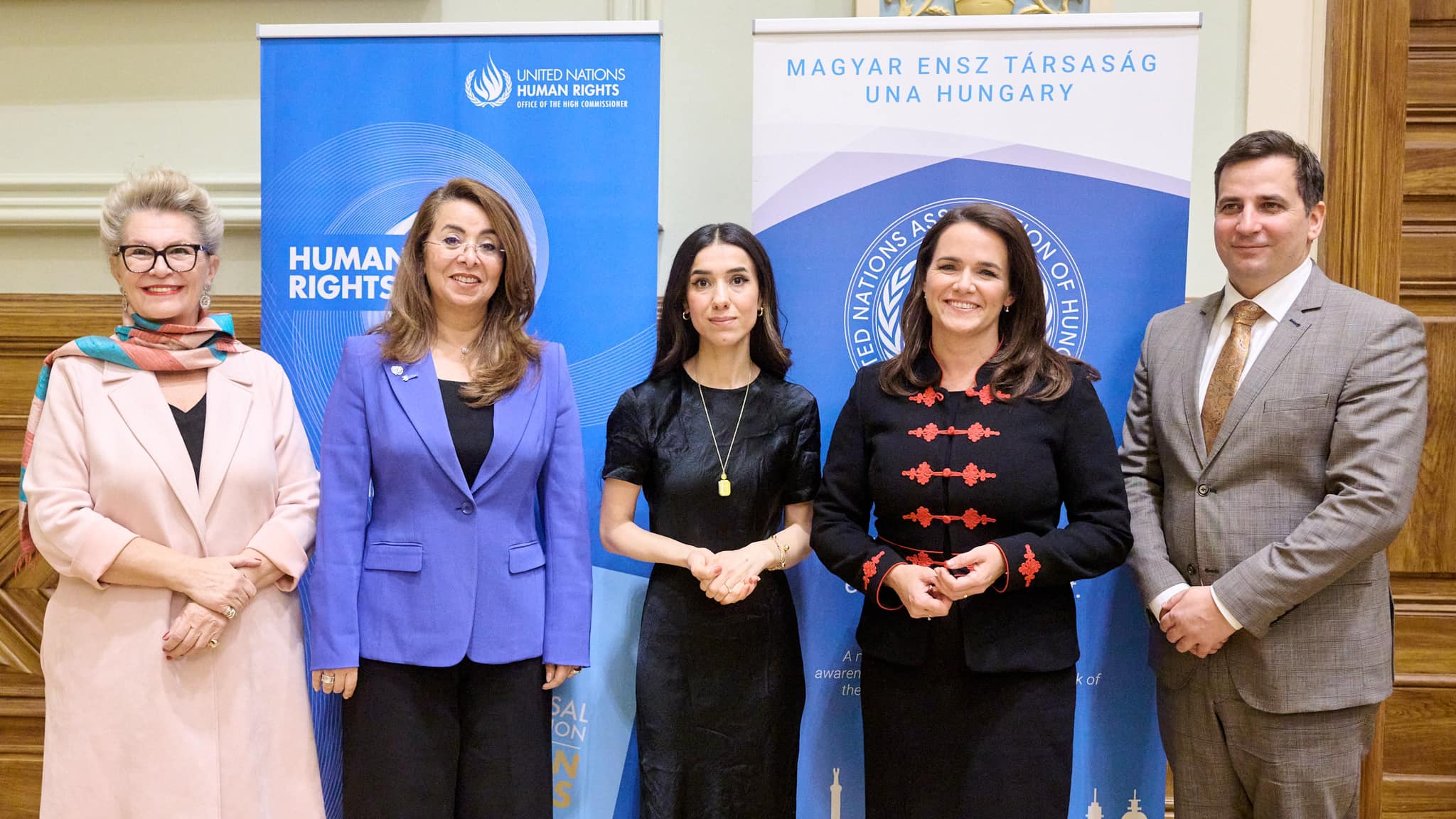Human rights must be fought for continuously!
Human rights must be continuously fought for so that various forms of human rights violations are not repeated - emphasized President of Hungary Katalin Novák at the international roundtable discussion in Budapest, organised by the National University of Public Service and the United Nations Association of Hungary on the occasion of the 75th anniversary of the Universal Declaration of Human Rights.
The Head of State added that, with regard to the protection of rights, each country must also reflect on the situation within its own borders and ask whether the most basic human rights are indeed guaranteed to all its citizens. Speaking about women's empowerment, she said it was important that women - not just in business and academia, but also in public policy - could help not only to raise awareness but also to prevent and resolve conflicts.
Recalling her visit to Erbil and its surroundings in Iraq a year ago, Katalin Novák said that her stay there, which was considered daring because of the security risks, also convinced her that it is impossible to talk about superior human cultures based on money or other measures of value, and that people in trouble and the vulnerable must be helped.
In addition to the Hungarian Head of State, the roundtable discussion was attended by Nobel Peace Prize laureate and human rights activist Nadia Murad, Director of the UN Office on Drugs and Crime (UNODC) in Vienna Ghada Waly, and President of the United Nations Association of Hungary Katalin Bogyay.
Nobel Peace Prize laureate and human rights activist Nadia Murad, who won the 2018 Nobel Peace Prize for her work against the use of rape as a weapon of war, said in an interview with Katalin Novák that people – confronted with violence and the violations of law - must decide what kind of world they want to live in, and then help oppressed minorities to defend their language, culture and human dignity.
The young woman, who was kidnapped from the autonomous region of Iraqi Kurdistan by Islamic State militants in 2014 and was raped, but later successfully escaped from captivity, said that even while studying at the University of Washington, she regularly returns to her country and works with her colleagues to restore the Yazidi minority's daily life and to assert their civil rights by building roads and schools.
Ghada Waly said that although the Universal Declaration of Human Rights, adopted in Paris in 1948 and translated into more than five hundred languages, has led to significant progress worldwide, the upholding of fundamental rights continues to face obstacles in many parts of the world.
As an example, she said that according to their data, around 2 billion people are currently living in or near war-torn conflict zones where violations of international law are systematic and aid is not always reaching people in need. She added that 110 million people are currently forced to live as refugees far from their place of origin and continue to be targets of trafficking and organised crime.
She stressed that 60 percent of victims of trafficking in human beings, which violates fundamental human rights, are women and girls, most of whom are also victims of sexual violence or exploitation. Ghada Waly also said that in 2022, 89,000 women were victims of intentional homicide worldwide. She added that the protection and promotion of human rights is not only a universal responsibility of states but also of individuals, and she believes that it is through the active and collaborative engagement of law-abiding people, including through the empowerment of women and the education of young people to grow up to respect the law, that results can be achieved and that the UN will continue to support the work of rights defenders.





